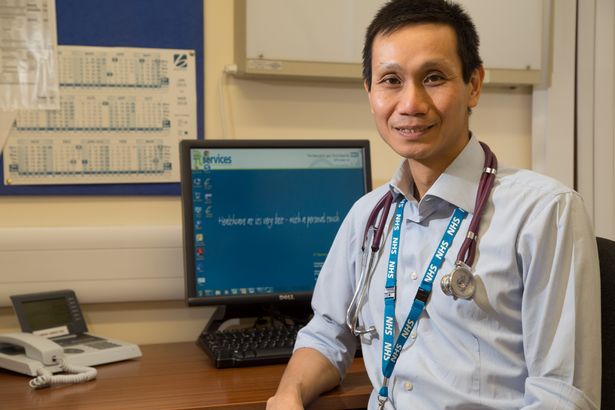Newcastle Hospitals is leading the IDEA-FAST study, which aims to find effective ways to monitor symptoms in patients with chronic disease.
The study involved patients with neurodegenerative and inflammatory diseases, where fatigue can have a major impact on quality of life.
One of the common side effects of chronic diseases such as Parkinson’s disease, inflammatory bowel disease and rheumatoid arthritis are problems with fatigue and disturbed sleep. Among patients with these diseases, fatigue is often rated as one of the most disabling symptoms, affecting their daily activities and their quality of life.
Despite this, monitoring these symptoms often relies on simply asking patients to fill in a questionnaire about their experiences. This method can be affected by patients misremembering things and not having enough detail about the intensity of their fatigue throughout the day.
Small, wearable device
One way to provide more accurate and reliable results is for chronic disease patients to wear small devices to monitor these physiological signals throughout the day. In a paper published in Frontiers in Physiology, an international group of researchers used wearable devices to measure and record fatigue and sleep patterns in such patients to see how effective the technology could be.
The study is led by Prof. Fai Ng, honorary consultant rheumatologist at Newcastle Hospitals and professor of rheumatology in the Translational and Clinical Research Institute at Newcastle University.
Quality of life

Professor Ng said:
“There’s an increasing number of articles all pointing towards fatigue being one of the biggest, if not the biggest factor, leading to a loss of quality of life in these patients,”
Fai adds that studying fatigue and disturbed sleep could be the first step in creating a ‘digital biomarker’ for these symptoms that are relevant to many chronic diseases.
The researchers first asked people with neurodegenerative disorders or immune-mediated inflammatory diseases if they were interested in taking part in their study. In total 136 participants agreed to take part, with patient groups in four European cities: one in the Netherlands, two in Germany, and one in the UK. Of these, 66 had inflammatory diseases, 31 had neurodegenerative disorders, while the remaining 39 participants were otherwise healthy individuals who acted as a control group.
To evaluate the effects of fatigue and disturbed sleep in real time, participants wore a small device called VitalPatch, a 12-cm long biosensor that adheres to the skin and is worn on the left side of the chest. It recorded their heart rate, the millisecond intervals between their heartbeats, and their breathing rate, among other things. This data was then encrypted and uploaded to a cloud-based platform.
Participants were asked to carry on with their regular home life while wearing the biosensor for most of the day, including while sleeping at night. This observation period typically lasted for four weeks; five days of wearing the biosensor, followed by two days of rest. While they wore the biosensor, participants were also asked their perceptions of fatigue and sleep quality four times per day over a survey app.
Comparing results
The data from the biosensor were then compared with patients’ self-reported fatigue and sleep disturbances. The researchers found that the biosensor was able to record data that correlated well with what the patients reported in the app.
The biosensor also revealed information that participants were unable to record. For example, after six minutes of light exercise (for example having a walk), biosensor data showed the significant difference in heartrate recovery between healthy people and those with a chronic disease. This can be an important predictor of certain factors that can lead to fatal health events, for example a heart attack.
The research is part of the Innovative Medicines Initiative (IMI) IDEA-FAST project, which aims to use digital technology to improve the efficiency of clinical trials.
Next steps
Although the paper represents an early pilot study, it shows that digital technologies can give clinicians realistic information when monitoring patients at home, differentiate chronic patients from healthy individuals, and monitor their quality of life.
Prof. Ng hopes that future research will be able to monitor additional physiological measures with a larger group of participants over a longer study period.
Original article written by IMI and adapted by Newcastle Hospitals.
- Newcastle Hospitals and Newcastle University are both part of Newcastle Health Innovation Partners (NHIP). NHIP is one of eight prestigious Academic Health Science Centres (AHSCs) across the UK, bringing together partners to deliver excellence in research, health education and patient care.
- IDEA-FAST is supported by the Innovative Medicines Initiative, a partnership between the European Union and the European pharmaceutical industry.
- The full paper can be found on the Frontiers in Physiology website.
